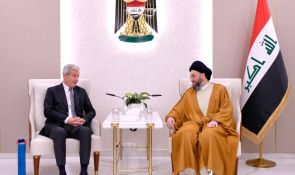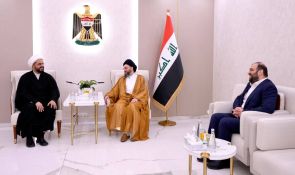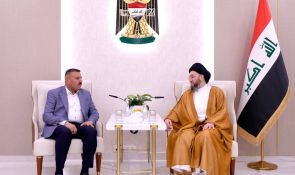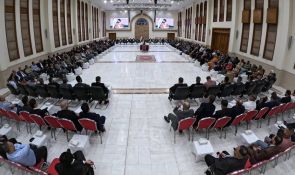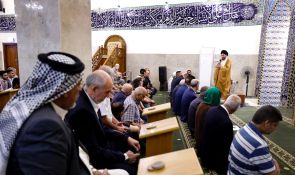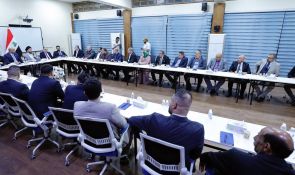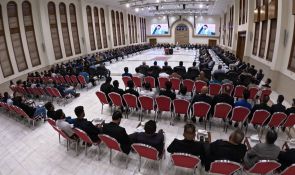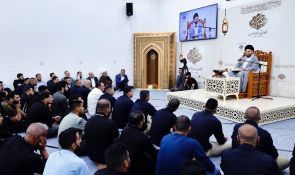Sayyid Ammar al-Hakim welcomes Sayyid Muqtada al-Sadr, discusses with him the latest country developments
Sayyid Ammar al-Hakim, head of the Islamic Supreme Council of Iraq (ISCI), received at his office Sayyid Muqtada al-Sadr, leader of the Sadrist Movement, and the delegation accompanying him on the eve of Thursday, January 3, 2013.
During the meeting, a discussion went on of the developments on the Iraqi field, especially with regard to the demonstrations witnessed by the western governorates and how to deal with the political crises facing the country, in addition to discussing the regional developments and their impact on the Iraqi field.
His Eminence, Sayyid Ammar al-Hakim, emphasized during the press conference which was held after the meeting the necessity of all politicians trying to come out with a united national outlook about the conditions the country is witnessing, pointing out that there are constitutional and service demands which these demonstrations demand, and the legislative and concerned entities have to try to carry them out.
His Eminence stressed uniting the political address within a patriotic outlook and strengthening it with constructive and true dialogue among the political forces, calling for respect for the freedom of expression and for looking into the constitutional and legal demands of he citizens everywhere as having been guaranteed by the constitution and the Iraqi state must execute them.
On his part, Sayyid Muqtada al-Sadr described his meeting with His Eminence Sayyid Ammar al-Hakim as having been “fruitful and constructive”, stressing in the press conference the necessity for unifying the outlooks among the political leaderships in order to treat the crises and developments which Iraq is presently witnessing, describing them as “a political, security and service hardship.” He pointed out to the importance for all political forces to build Iraq and to keep at bay from the policy of marginalization and exclusion, calling on al-Maliki’s government to deal with the domestic problems via the method of civilized dialogue and a wise political language.


